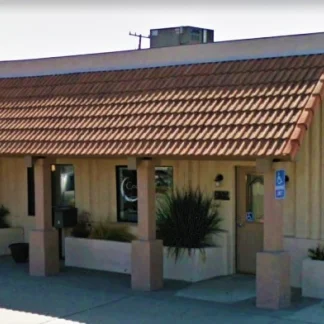Good Samaritan Services
Good Samaritan Services is a drug rehab facility in Lompoc, California. The cent...
Coast Valley - F Street is a drug rehab located in Lompoc, California that offers treatment for substance use disorder, alcohol use disorder, and co-occurring mental and behavioral health disorders. Coast Valley - F Street provides inpatient treatment, outpatient programs, dual diagnosis treatment, case management, and aftercare for adults and young adults. Specialized programs may be available for veterans and the LGBTQ+ community. Services are available in English or Spanish.
At Coast Valley – F Street, inpatient clients receive an evaluation and a customized treatment program. The center provides counseling and therapy for groups and individuals, peer support, and life skills development to promote sobriety. Group activities and recreational therapy may also be available.
Outpatient clients receive group and individual therapy to prevent relapse. Family therapy and resources may also be available to assist the client transition into daily living routines.
Coast Valley – F Street provides continuous care and support through aftercare services. The center may provide referrals to outside facilities for specialized treatment.
Coast Valley – F Street offers self-pay and financing options. The center may be in-network with insurance providers, such as Aetna, Anthem, BlueCross/BlueShield, Cigna, Humana, Magellan Health, TRICARE, and United Healthcare. Medicare may be accepted. Please check with your insurance provider for specific details concerning out-of-network benefits.
Contact us for more information: (805) 735-7525

Connect with Coast Valley - F Street by calling their admissions team directly.
(805) 735-7525 Website Get DirectionsGroup therapy is any therapeutic work that happens in a group (not one-on-one). There are a number of different group therapy modalities, including support groups, experiential therapy, psycho-education, and more. Group therapy involves treatment as well as processing interaction between group members.
In individual therapy, a patient meets one-on-one with a trained psychologist or counselor. Therapy is a pivotal part of effective substance abuse treatment, as it often covers root causes of addiction, including challenges faced by the patient in their social, family, and work/school life.
Trauma therapy addresses traumatic incidents from a client's past that are likely affecting their present-day experience. Trauma is often one of the primary triggers and potential causes of addiction, and can stem from child sexual abuse, domestic violence, having a parent with a mental illness, losing one or both parents at a young age, teenage or adult sexual assault, or any number of other factors. The purpose of trauma therapy is to allow a patient to process trauma and move through and past it, with the help of trained and compassionate mental health professionals.
In individual therapy, a patient meets one-on-one with a trained psychologist or counselor. Therapy is a pivotal part of effective substance abuse treatment, as it often covers root causes of addiction, including challenges faced by the patient in their social, family, and work/school life.
Trauma therapy addresses traumatic incidents from a client's past that are likely affecting their present-day experience. Trauma is often one of the primary triggers and potential causes of addiction, and can stem from child sexual abuse, domestic violence, having a parent with a mental illness, losing one or both parents at a young age, teenage or adult sexual assault, or any number of other factors. The purpose of trauma therapy is to allow a patient to process trauma and move through and past it, with the help of trained and compassionate mental health professionals.
Trauma therapy addresses traumatic incidents from a client's past that are likely affecting their present-day experience. Trauma is often one of the primary triggers and potential causes of addiction, and can stem from child sexual abuse, domestic violence, having a parent with a mental illness, losing one or both parents at a young age, teenage or adult sexual assault, or any number of other factors. The purpose of trauma therapy is to allow a patient to process trauma and move through and past it, with the help of trained and compassionate mental health professionals.
Good Samaritan Services is a drug rehab facility in Lompoc, California. The cent...
Crestwood Champion Healing Center, located in Lompoc, California, is a drug reha...
Central Coast Headway is a drug rehab located in Lompoc, California that offers ...
Good Samaritan Services – Another Road Detox is a drug and alcohol rehab center ...